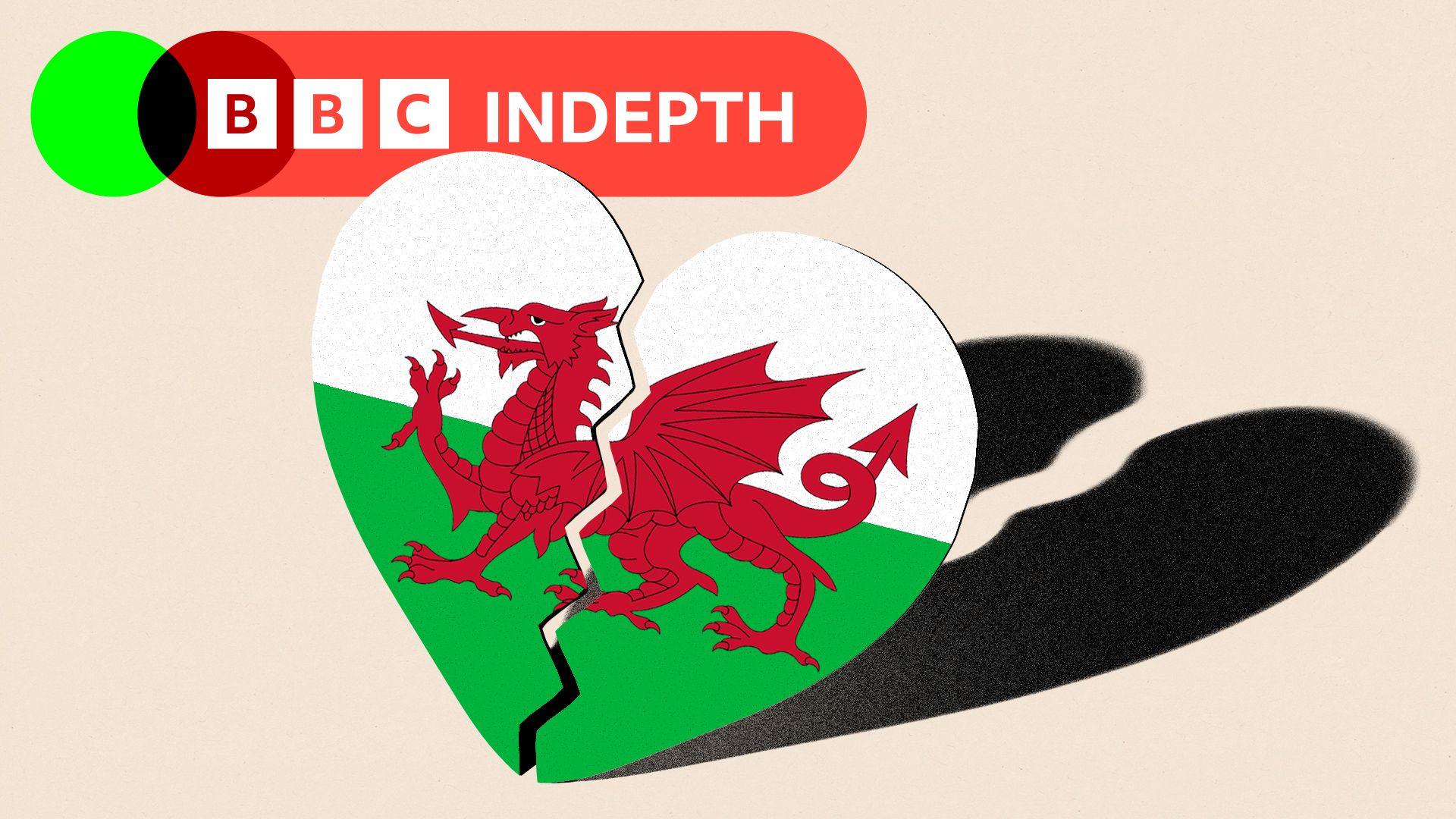'I've had a wonderful life' - Covid doctor's goodbye letter to family
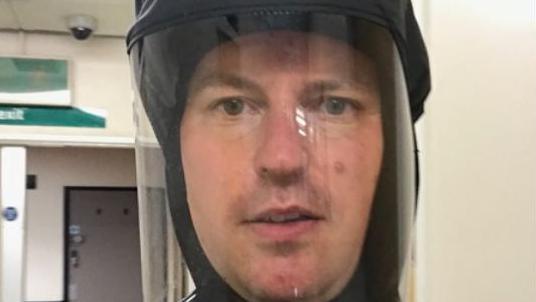
Dr Matt Morgan wrote a letter to his wife, scared he would not survive the coronavirus pandemic
- Published
"I have had a bloody wonderful life. I have found love, travelled, partied, had two amazing children, spent time with friends, family and done things I had never dreamed of."
It sounds like the parting letter of an elderly person on their death bed, reflecting on a happy life well lived.
But it is in fact an email a 40-year-old Dr Matt Morgan wrote to his wife, scared he would not survive the coronavirus pandemic on the intensive care ward at Cardiff's University Hospital of Wales.
On Thursday, the UK Covid-19 inquiry's judgement on the Welsh government's response will be delivered.
The second report to be published following a public inquiry on Covid will focus on key political decisions made in Cardiff, and also by governments in London, Edinburgh and Belfast.
Between 2020 and mid 2024, more than 12,000 people in Wales died with Covid - with 83 deaths recorded in a single day at the peak of the second wave in January 2021.
Dr Morgan was working the day Wales' busiest hospital got its first Covid patient, and as the pandemic worsened, he wrote an email to his wife called "Things To Know In Case I Die".
It listed things such as internet passwords at home she might need, before touching on what the family should do if the worst happened.
"Easier said than done, but don't stay sad for too long," he wrote.
"Remember the good times, the times we laughed and the times we cried. Look at old photos, remember me on my birthday, but don't stay sad too long. We only have one life, as I now realise. Go and live it.
"I'd like to be buried but don't really mind. A completely non-religious service, but one prayer so my mum and dad feel supported. Ideally, [REM song] Nightswimming as a song. I would like to be made into a skeleton ideally."
Five years on, Dr Morgan, who is from Neath, described remembering what the first Covid patient looked like, how they were put on a life support machine, and the concern for them and their family.
He also remembered the fear felt among staff, who were unvaccinated at the time, writing everything he wanted to say to his wife, parents and two daughters, who are now 13 and 16.
But there were some colleagues who never went home.
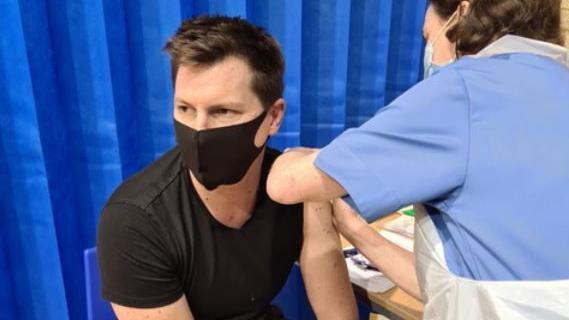
Dr Morgan described unvaccinated staff helping people with coronavirus - and how remarkable it was a vaccine was developed so quickly
Now 45, Dr Morgan remembered the "extraordinary things" staff did, and said it was remarkable a vaccination was developed so quickly.
But he is now concerned about a lack of preparation for another pandemic, particularly with Wales having some of the lowest intensive care bed numbers in Europe per head of population.
"Of course politics has to have a bigger picture, it has to consider long-term issues, medium-term issues, the impact of people losing businesses, the impact on schools and so on," he said.
"If you're a politician you have to look at all those society factors.
"And it's hard to make decisions when you won't have a result or output for a decade, two decades or even a generation."
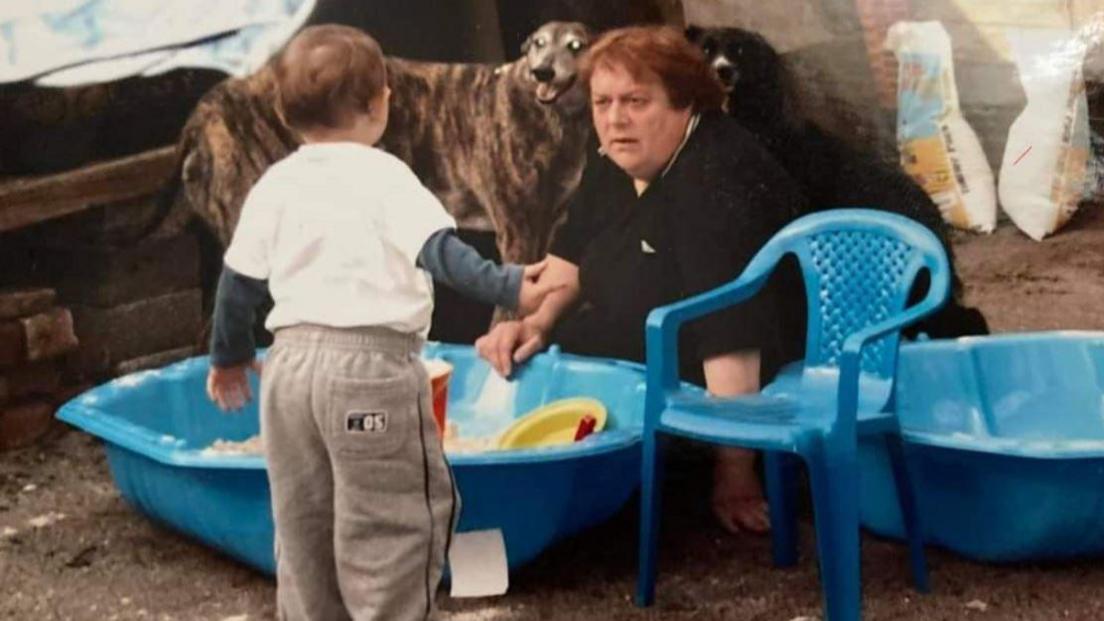
Rhys Morgan described his auntie Lynne as like a second mother
Rhys Morgan, from Gowerton, Swansea, was 16 and studying for his GCSEs.
Now 21, he is the youngest member of the Covid-19 Bereaved Families for Justice Cymru, external group, and says he will never "forgive and forget" what happened.
As well as dealing with the disruption of not going to school, there were choices over going to sixth-form college, with his auntie Lynne, a "very joyful character", and "second mum", someone who would drop everything to chat when he was struggling.
But in December 2020, he remembers what would be his last call from her while she was in hospital.
"I couldn't really make out what she was saying because of the [breathing] machine but I know she was telling me it was OK and we could get through it," he said.
"On Christmas Eve my Dad had another phone call saying she'd passed that morning.
"And I had to deal with seeing my father in such a state and then to deal with Christmas as a family - that was hard and has taken a toll."
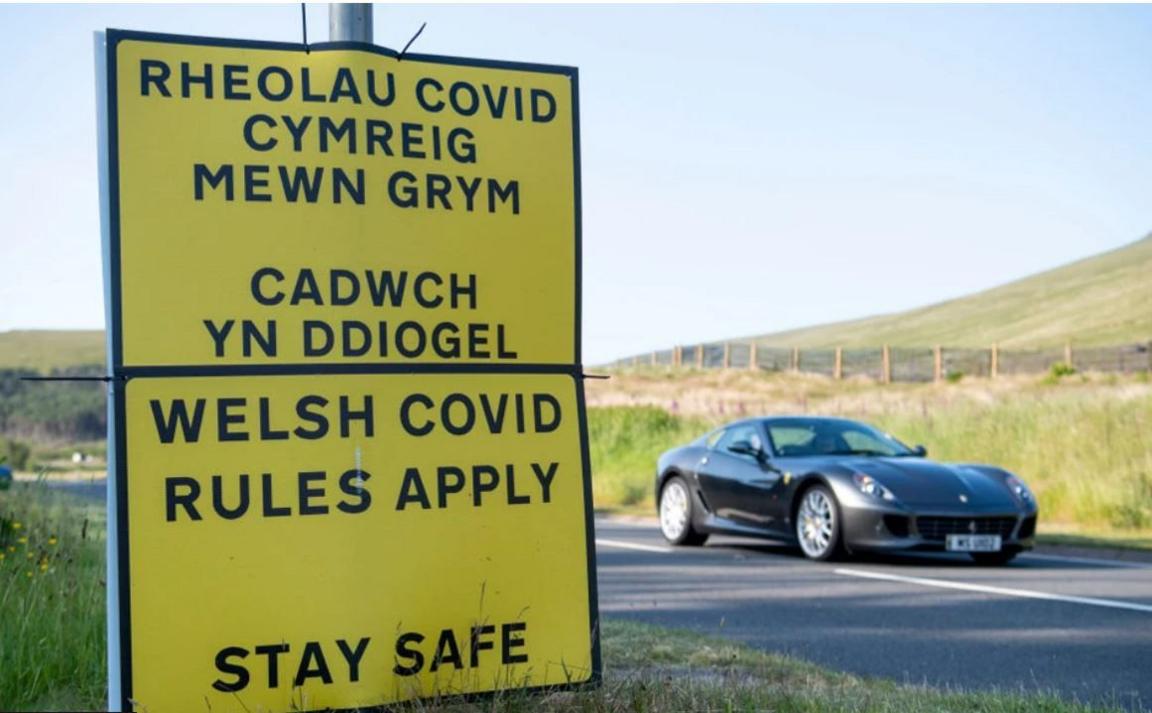
The report will look into the Covid responses of the different governments - with different rules applying when you crossed the border between Wales and England
That trauma made it difficult for him to re-engage with everyday life when restrictions were eased later in the pandemic.
"I was scared to leave the house, scared to do things, and when I went back to school, it was even worse, because I didn't want to be there," he said.
"I wanted to look after my family.
"And sometimes teachers or kids of my age at the time wouldn't understand because they didn't have the same trauma and experience I had."
While he hopes the inquiry's findings will bring closure, he believes both the Welsh and UK governments could have done more to protect vulnerable patients.
He shared his experiences with the Covid inquiry, and said: "I feel a lot of pain and a lot of anger and I feel things could have been managed differently."
What will be in Covid inquiry report?
The UK Covid-19 Inquiry's second report will consider the "core" pandemic decisions made by governments in Wales, England, Scotland and Northern Ireland.
As part of the process, the inquiry, chaired by former High Court judge Heather Hallett, held three weeks of hearings in Cardiff.
A total of 31 witnesses from Wales appeared including politicians, civil servants, public health experts and representatives of bereaved families.
The report is likely to consider a number of questions, including whether the Welsh government fully appreciated the threat of the virus in the early stages and whether vulnerable and elderly patients, in particular, were sufficiently protected.
It is also likely to look at periods when different rules were in place in Wales and England and consider the relationship between the Welsh and UK governments at the time.
Yet campaigners representing bereaved families remain concerned that the report will not consider what happened in Wales in as much detail as what happened in England.
As a result, they still want a separate Welsh-specific Covid inquiry to look in greater detail at the response here.
Related topics
More top stories
- Published18 hours ago
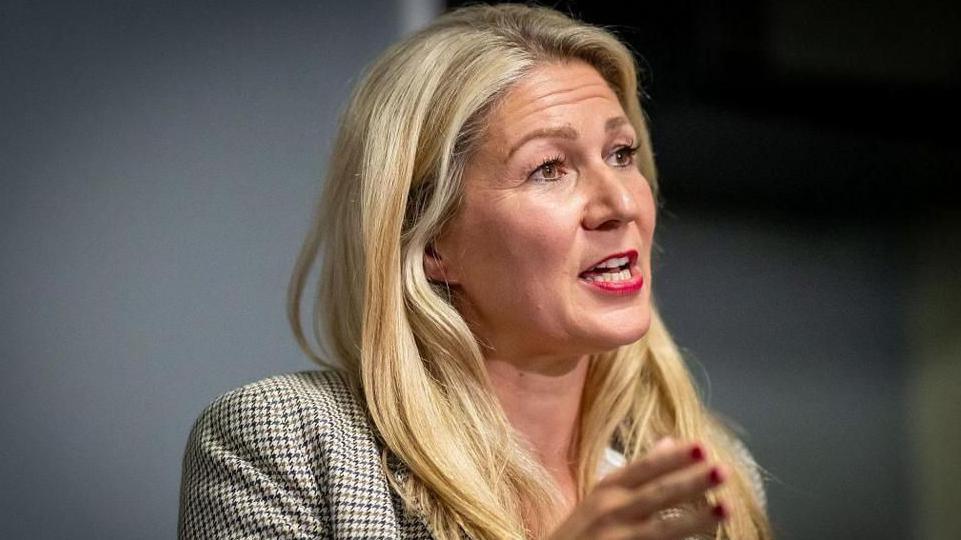
- Published35 minutes ago
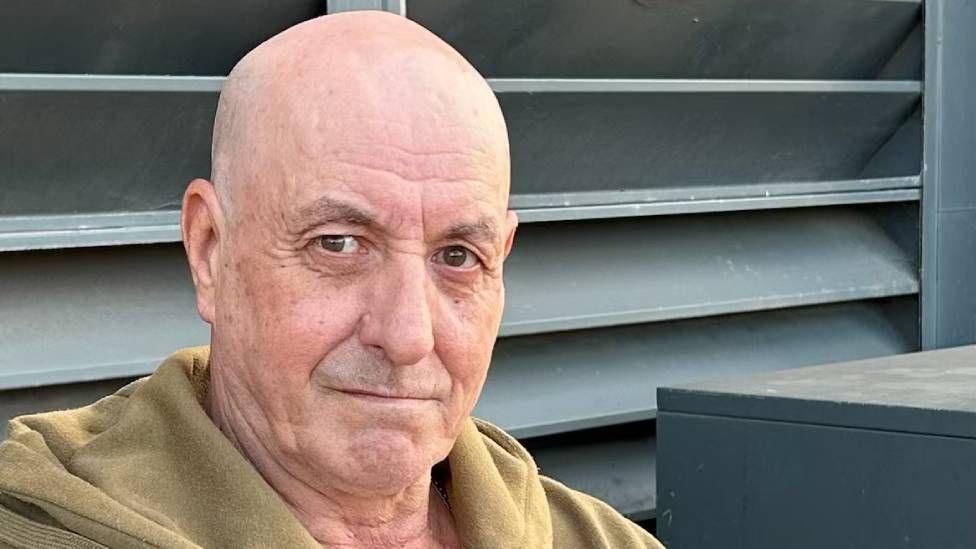
- Published14 hours ago
